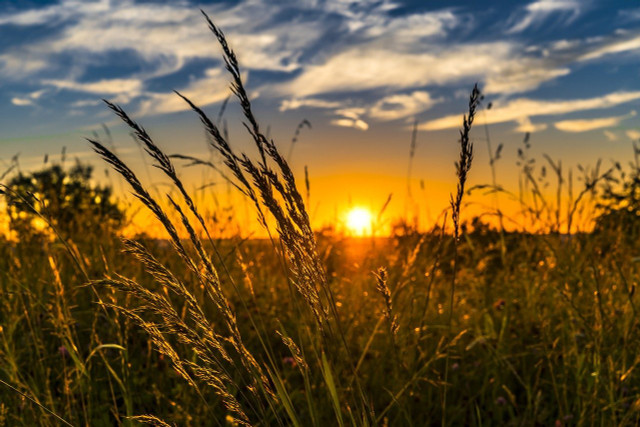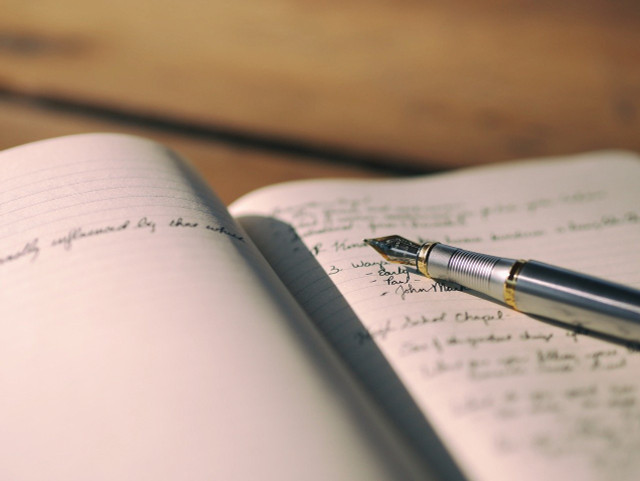
Many of us like to complain – and that’s a shame, because it has even been scientifically proven that gratitude promotes well-being and health. So it’s high time to become more grateful.
Gratitude towards others and yourself has a positive influence on your well-being. Because showing or being shown recognition and appreciation gives rise to a positive feeling. Of course, it’s not a panacea for negative thoughts or bad feelings, but gratitude can help you feel better.
Why is gratitude healthy?

(Photo: CC0 / Pixabay / FelixMittermeier)
With gratitude you promote your health, your well-being and your mental defenses. And this is not just esoteric, it has even been scientifically proven. Scientists Robert Emmons and Dr. Michael E. McCullough had a group of her subjects regularly keep journals and lists of what they were grateful for. Another group was asked to write about negative experiences during the day and the third group was given neutral instructions to write about the most important events overall. The study produced the following results:
- Those who focused on the positive were generally more optimistic and approached their lives more positively.
- They did more sport and increased their fitness.
- The grateful group was more likely to make progress on important personal goals.
- Visits to the doctor were less frequent in the comparison groups that reported neutral or negative experiences, while the grateful group reported complaints such as headaches or stomach aches less often.
- The optimism of the grateful test group also related to the future; they were more optimistic about the coming days than the comparison group.
Other studies were able to provide some other interesting results:
- A study of young adults found that subjects were more attentive, mindful, enthusiastic, determined and had more energy after the intervention.
- People who did a daily gratitude practice were more likely to help others with personal problems or provide emotional support.
- Gratitude can also lead to better sleep or help you feel connected to others.
- Gratitude towards your partner is also important in relationships: If you can express gratitude towards your partner, you not only have a positive attitude towards them, but you also find it easier to discuss concerns and difficult things with the other person.
- Those who receive thank yous more often at work are more committed and motivated.
According to an article in Der Spiegel, gratitude’s positive effects even help prevent anxiety and panic disorders, alleviate phobias and act as a protective factor against depression. Because gratitude also works against chronic stress, a scientist was even able to prove that gratitude supports the health of people with heart problems. Scientists also found that blood pressure was reduced by 25 percent after gratitude exercises.
How can you integrate more gratitude into your everyday life?

(Photo: CC0 / Pixabay / Pexels)
When you focus on the things in life that you are grateful for, it makes you happier and changes your perspective. There are numerous, very simple ways to do this:
- The simplest one is quite obvious: say thank you more often to the people around you (and mean it). This motivates you and her alike.
- Have you ever thought about writing a thank you letter to someone important to you?
- No time for a thank you letter or the person concerned is not there right now? Then thank him or her in your mind.
- Keep a gratitude journal: Write down the things, people or experiences you are grateful for every day. By the way, writing a diary is a healing ritual overall.
- Can’t find time to keep a daily gratitude journal? Then take time once a week and list the things you are grateful for. It’s best to keep them in writing.
- Prayers are also a form of expressing gratitude.
- There are also apps that remind you of your daily dose of gratitude or suggest exercises.
8. Gratitude meditation
Gratitude can also be easily integrated into meditation:
- To do this, sit in a relaxed, open position.
- First, focus on your breath, feeling it flow in and out.
- Then feel into your body: Where do you feel gratitude?
- Let this feeling grow, expand throughout your body.
- Say to yourself the sentence “I am grateful” or simply “Thank you”.
- Maybe you would like to thank something or someone very special? Which people in your life are you grateful for? For what experience? Send him a “thank you” in your mind.
- When you think it’s time, bring your focus back to your breathing and end the meditation.
Read more on Utopia:
- Self-efficacy: This is how you promote and strengthen it
- Learning to Juggle: A Guide for Beginners
- Learning to be calm: Helpful tips
English version available: How to Practice Gratitude: Daily Lessons on Being Grateful
Revised by Lena Kirchner